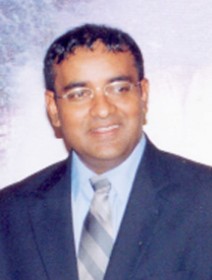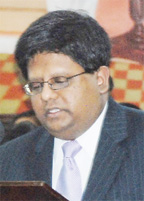For an administration that says it sets much store by freedom of thought and expression, the Government of Guyana gradually earned a well-deserved reputation for frowning harshly on public utterances that either challenge or contradict its own point-of-view. President Bharrat Jagdeo himself has now become used to tussles with sections of the media over pronouncements which he perceives to be ill-informed or damaging to the image of his administration. There have been cases in which he has taken careful aim at particular media houses and, on occasion, individual reporters and columnists with the better-known incidents leading to threats of legal action.

Intolerance of and robust official responses to pronouncements that challenge the official line are not unique to the Jagdeo administration. Under Forbes Burnham the People’s National Congress’ (PNC) lack of appetite for criticism of the government extended to widespread restrictions on local media freedom, including newsprint restrictions and other pointed attacks on media freedom. The People’s Progressive Party (PPP), during its sojourn in opposition rarely if ever missed an opportunity to attack the PNC’s record on media freedom and the right to free expression.
Under the Desmond Hoyte administration greater accommodation of free expression was reflected in a sharp shift in official attitudes towards allowing the operation of private media houses, a trend that has continued under the present administration. Greater freedom to print and broadcast, however, apart from not having led to an end to state domination of the radio industry has not been attended by a lessening of official fretfulness over what government regards as ‘harmful reporting’ and the net effect of what is widely regarded as a worsening paranoia on the part of those who rule has led to even more confrontations between the political administration and the private media.
Local media criticism of official government policies has always been logistically easier to deal with. The PNC – particularly under Burnham – employed various strategies to strangle opposing points-of-view. For its part, the Jagdeo administration has appeared inclined to use the fact that the state is by far the biggest spender on public advertising to rein in its media critics. The Stabroek News has already felt the effects of the withdrawal of state advertising and even now the government’s disclosure that in the future it will be relying more on an official web site to post its advertisements has evoked a measure of public concern among media houses.

The Government of Guyana has always understood, however, that local media houses are not society’s sole watchdogs. Diplomatic missions, international organizations and a host of well-respected non-governmental organizations also compile Country Reports and these, of course, are beyond the reach of the domestic political administration. The Burnham administration used to respond to external criticism of its economic policies and human rights record by asserting mostly that these were manifestations of imperialist propaganda spawned by enemies of his administration’s socialist political posture. That excuse, of course, has long lost its validity and the Jagdeo administration has had to find other ways of dealing with what it regards as unfavourable international representation of its policies. Of course there is no way that the political administration can suppress these. publish, however, and if there was little that it could do about external condemnation of its policies, such was invariably met by charges were inspired by its critics opposition to its anti-imperialist political posture.
The President and his Ministers have gone about this task with a surprising aggression and decided lack of finesse, applying blunt hostility rather than deliberate diplomacy in their approach. The United States’ insistence that the Jagdeo administration has a less than enviable record on Trafficking in Persons was met with harsh words from the President himself, Cabinet Secretary Dr Roger Luncheon and Human Services Minister Priya Mannickchand. More recently, the customarily austere Finance Minister Dr Ashni Singh, launched an altogether uncharacteristic tirade against a report published by the Economist Intelligence Unit (EIU) the challenged some of the official statistics contained in his 2010 budget. Christopher Ram, Heads of the accounting firm Ram and McRae and, more recently, an Attorney-at-Law and a contributor to the report, came in for a withering personal attack from the engaged Finance Minister.
The government’s now well-earned reputation for wading into its critics has had some interesting proclivity for responding

Latterly, the Jagdeo administration appears to have developed a preference for taking pot shots at external criticism of its policies and again it is the President and his Ministers who have led the charge. Earlier this year, both the President and his Human Services Minister Priya Mannickchand mounted strident attacks against the United States Government in response to charges that Guyana’s record on trafficking in persons was a less than healthy one. More recently, a report by the Economist Intelligence Unit on the Guyana economy some of the contents of which were published in the Stabroek News’ Business edition was met with a virulent tongue-lashing by the usually austere Finance Minister Dr. Ashni Singh. Dr Singh appeared to be particularly outraged over the EIU’s forthright challenge to statistics appearing in his 2010 budget speech while his pointed attack on Christopher Ram the Head of the Accounting firm Ram and McRae and a contributor to the EIU Report was both vicious and tasteless.
Critics of what has come to resemble an official policy of jumping on any point of view that does not coincide with its own
External scrutiny has traditionally been the bane of governments’ existence in Guyana for obvious reasons. Whereas government could dismiss its domestic critics as having a political axe to grind, it has always been decidedly more difficult to attach ulterior motive to external critics. Each year, the US State Department issues a Country Report in Guyana and a recurring theme in that report is the abuse of citizens rights by the police and the failure of the government to take action to curb the excesses of the perpetrators. These days, the government mostly allows State Department’s assessment of its human rights record to pass without much complaint though its has chosen to take on Washington on other issues. One such issue has been the unfavourable categorization of Guyana’s record of Trafficking In Persons. President Jagdeo himself and his Human Services Minister Priya Mannickchand have had some choice words for Washington over the placing of Guyana in the Tier 2 Trafficking In Persons category.





